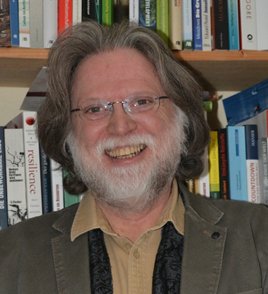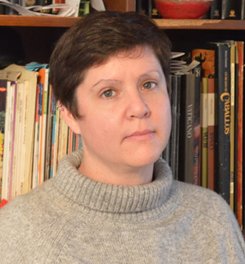Sustainable development needs system thinking, but how to achieve it?

In this creative session in the Experiencing Educational Partnerships strand, participants will learn how to achieve systems thinking competence by following ten subsequent steps. The session will allow the group to identify suitable topics and gather different ideas to design a concise learning course for the development of the competence.
According to UNESCO´s conviction, systems competence is one out of eight key competences which should be developed by each individual learner in the context of Education for Sustainable Development (ESD). Within these eight key competences systems competence has an extraordinary meaning for ESD because it creates the conditions to perceive and understand environmental-societal interrelations and contributes strongly to the development of all the other seven key competences. Though there is a long tradition of systems learning and competence development (e.g. Meadows Rempfler/Uphues 2011; Fögele/Mehren/Rempfler 2020) a concise and interculturally designed learning course to develop the intended systems competence in the context of sustainable development is missing.
The aim of the creative session is to fill this gap by introducing a way how to achieve systems competence of the learners by following ten subsequent steps of teaching. Each step focuses on a specific aspect of the intended systems competence such as perceiving daily use items and recognize them as element(s) of more or less complex systems, the design of concept maps as the visualization of systems or the identification of leverage points to change systems in the sense of sustainable development, just to name a few.
To enable the learners to cope with the challenges of the singles steps each of these learning units is combined with suggestions for supporting learning methods. By means of two examples (jeans and chips) the participants will gain an insight into the adaptation of the theoretical based learning course ten steps towards systems thinking.
This learning course is an excellent example of Experiencing Educational Partnership, since ithas been developed interculturally by the international think tank on ESD: “ESD Expert Net”. The learning course considers the demands of the learners in Mexico, South Africa, India and Germany. It was conceived to draw upon the concepts articulated in the global discourse on ESD, and which offer practical steps to develop systems thinking.
Within the interactive phase of the creative session the participants will identify suitable topics for an own systems thinking learning course. The suitability of the suggested topics will be discussed commonly with all participants. On the base of this discussion the participants will develop a rough sketch of their individually chosen topic through the ten steps towards systems thinking. A final discussion and a general reflection on the suggested learning course will round up the workshop.
The creative session of 90 minutes is divided into four sections:
- Introduction into the 10 steps towards Systems Thinking. During this section the participants will know how are these ten steps integrated and how they can be applied.
- Adapting the learning course along an example.
- Identification of suitable topics – The participants will work in small groups and define a suitable topics to apply with the ten steps.
- Final discussion / reflection on 10 Steps Towards Systems Thinking
At the end of the workshop the participants will be able to identify suitable topics and have a general idea how to design a concise learning course for the development of systems thinking competence.



